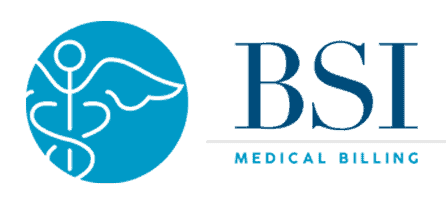Why Is Accurate Coding Important for Healthcare Providers and Patients?
As a healthcare professional, you want to provide your patients with the best medical care possible. The years you dedicated to schooling and ongoing training, the investments made in innovative technology, and the time devoted to patient care all play an integral role in meeting that goal. But in the modern healthcare landscape, that’s no longer enough. To ensure appropriate treatment for those under your care and to remain financially stable as a practice, you must implement superior medical coding and billing standards. Continue reading this article to learn why accurate coding is important and how inaccurate coding affects your practice and patients.
What Is Medical Coding?
Medical coding is a way to define and interpret medical procedures, diagnoses, services, equipment, and other elements into a universally recognized coding system. The International Classification of Diseases (ICD) is the most widely recognized system and is used in hospitals, clinics, and facilities in over 100 countries.
ICD-10-CM is used to identify diagnosis coding. ICD-10-PCS is focused on coding for inpatient settings and specifies procedures performed there. The American Medical Association developed Current Procedural Terminology (CPT) codes. Medical coders use over 10,000 CPT codes to translate physician notes from patient charts and clinical documentation into numeric or alphanumeric codes that identify an extensive range of diagnoses, services, and technologies.
If that seems like a complex task, you’re right. Medical coding requires incredible attention to detail, pristine accuracy, and a deep understanding of coding guidelines. To make things even more complicated, coding compliance standards and codes themselves are constantly changing.
Who Does Medical Coding?
Every practice and practitioner is different. Some physicians take on the responsibility of medical coding themselves. Others have an in-house team of coders to handle their needs. Still, others choose to partner with third-party specialists that provide a dedicated team of AAPC-certified coding experts to ensure the highest level of professionalism and accuracy for their coding needs.
It is important to note that no matter who submits claims with coding, the practitioner is ultimately held responsible. This highlights the importance of accurate coding. It also makes the decision of who handles your coding crucial. As you’re about to see, insufficient coding can negatively impact a practitioner or practice in many ways.
How Can Inaccurate Coding Affect Your Practice?
We’ve arrived at the most common question: Why is accurate coding important? There are many reasons you should prioritize meticulous coding. It is essential in selecting the appropriate treatment, maximizing reimbursements, maintaining medical coding compliance, and conducting industry-wide research.
Let’s explore how inaccurate coding affects your practice:
Declining Outcomes and Safety of Patients
You may wonder how a medical practice’s coding can impact patient outcomes. Submitted codes are used as large datasets to give governing bodies like the World Health Organization a broad overview of the health of specific populations and even worldwide. Experts study the data to assess physicians, practices, hospitals, and other facilities to determine the level of care provided.
Another reason accurate coding is important is that the more accurate the data, the more focused initiatives to overcome common challenges can be developed. Proper coding is vital in identifying what is known as Hospital Acquired Conditions (HACs). HACs are complications that stem from medical care, not a preexisting condition. This information is vital for organizations to track and implement policies and practices to avoid unnecessary patient complications.
Unstable Financial Footing
Inevitably, medical coding errors lead to claim denials. And unless you don’t want to be reimbursed by insurance companies for your hard work, that means you have to take the time to correct and resubmit the information. Even if you have a stable cash flow at your office, persistent delays and denials can quickly cause those streams to dry.
Inaccurate coding affects your practice by adding lengthy claims management processes that bog down your accounts receivable department. The less time they have to focus on high-priority initiatives to tend to denied claims also impacts your financial health. If you have a small back-office team responsible for multitasking, this can devastate patient care, revenue, and your practice as a whole.
On top of being accurate, medical coding must also be thorough. If your claims only include coding for a portion of the care provided, you’re not going to maximize your reimbursement. And when doing combo codes, it can get tricky to bill for these services properly.
Not Meeting Medical Coding Compliance Standards
Meeting medical coding compliance standards should be of the utmost importance for all physicians and practices. Undercoding, or incomplete coding, is problematic because it causes you to generate less revenue. But there can also be more severe consequences. Procedures or codes left off billing can be deemed fraudulent. Some physicians have done this to avoid audits or save patients they’re close with from having larger bills.
Upcoding, which is coding that reflects treatment or services that physicians never provided or ones that are more expensive than those that were, is also a serious medical coding compliance issue. That’s because it leads to overbilling and overpayments. In these circumstances, fraud and abuse charges are likely. Even if accidental, these types of charges can have dire financial consequences.
If not following coding compliance guidelines, authorities can take numerous measures. Common penalties include fines, increased audits, investigations, and even closure.
Learn more about the importance of accurate coding and how it an impact more than your cash flow.
Tips for Following Coding Compliance Guidelines
Maintaining coding compliance is a challenging task for many organizations. However, it’s possible if you follow some best practices. Start by developing a compliance plan and then execute it with the following steps:
- Make sure you’re providing clear, high-quality clinical documentation. Even the best coders in the world are only as good as the information they’re delivered. Ensure all procedures, services, treatments, and information are documented.
- Use technology to automate what can be done more efficiently. There is software available that can assist in maintaining medical coding compliance and help eliminate human-error.
- Make sure those handling your coding are qualified and receive ongoing training. If you’re not arming your coding team with the tools they need to excel, how can you expect them to?
- Don’t overwhelm yourself or the coding team. When rushed or trying to work through backlogs, people can get sloppy. If things are becoming too difficult to handle, you must find ways to increase coding productivity without compromising quality.
- Ensure your providers understand the importance of coding and their role in passing along information.
Outsource Coding Services to an Experienced Expert
Medical coding and billing specialists are wonderful resources for practitioners. They allow you to focus on patient care and growing your practice with confidence. When choosing a coding services provider, look for a company with an established reputation, plenty of experience, and proven results of exceptional clean claims rates.
It can also help to talk to other providers and ask about their experiences with a coding specialist. Once you see the increase in revenue and drop in claims denials, you’re sure to understand why accurate coding is essential.




